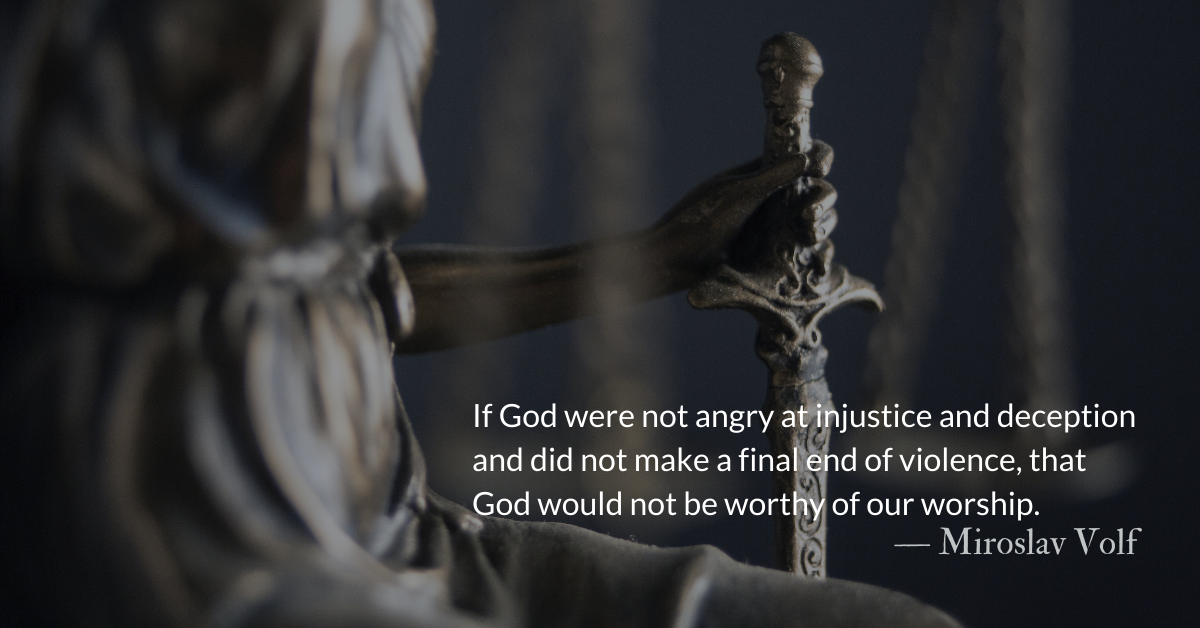Scripture Focus: Deuteronomy 19.16-21
16 If a malicious witness takes the stand to accuse someone of a crime, 17 the two people involved in the dispute must stand in the presence of the Lord before the priests and the judges who are in office at the time. 18 The judges must make a thorough investigation, and if the witness proves to be a liar, giving false testimony against a fellow Israelite, 19 then do to the false witness as that witness intended to do to the other party. You must purge the evil from among you. 20 The rest of the people will hear of this and be afraid, and never again will such an evil thing be done among you. 21 Show no pity: life for life, eye for eye, tooth for tooth, hand for hand, foot for foot.
Reflection: Justice of God
By John Tillman
Sometimes when we find penalties in the Bible harsh, it is because we have been fortunate enough to never suffer serious harm or experience evil first hand. Shockingly light sentences today for rapes, police shootings, or deaths caused by negligence or drunk driving often lead to outcries from victims. When we have been harmed, pity is the last thing on our mind.
Miroslav Volf writes that In order to maintain non-violence, we need a belief that God will act in vengeance on behalf of victims.
“One could object that it is not worthy of God to wield the sword. Is God not love, long-suffering and all-powerful love? A counter-question could go something like this: Is it not a bit too arrogant to presume that our contemporary sensibilities about what is compatible with God’s love are so much healthier than those of the people of God throughout the whole history of Judaism and Christianity?
In a world of violence it would not be worthy of God not to wield the sword; if God were not angry at injustice and deception and did not make the final end to violence God would not be worthy of our worship.
My thesis that the practice of nonviolence requires a belief in divine vengeance will be unpopular with many Christians, especially theologians in the West. To the person who is inclined to dismiss it, I suggest imagining that you are delivering a lecture in a war zone (which is where a paper that underlies this chapter was originally delivered). Among your listeners are people whose cities and villages have been first plundered, then burned and leveled to the ground, whose daughters and sisters have been raped, whose fathers and brothers have had their throats slit. The topic of the lecture: a Christian attitude toward violence. The thesis: we should not retaliate since God is perfect non-coercive love.
Soon you would discover that it takes the quiet of a suburban home for the birth of the thesis that human nonviolence corresponds to God’s refusal to judge. In a scorched land, soaked in the blood of the innocent, it will invariably die. And as one watches it die, one will do well to reflect about many other pleasant captivities of the liberal mind. If God were not angry at injustice and deception and did not make a final end of violence, that God would not be worthy of our worship.”
*Excerpt from Exclusion and Embrace: A Theological Exploration of Identity, Otherness, and Reconciliation by Miroslav Volf.
Divine Hours Prayer: The Morning Psalm— Wait Upon the Lord
Wait upon the Lord and keep his way; he will raise you up to possess the land, and when the wicked are cut off, you will see it.
I have seen the wicked in their arrogance, flourishing like a tree in full leaf.
I went by, and behold, they were not there; I searched for them, but they could not be found.
Mark those who are honest; observe the upright; for there is a future for the peaceable.
Transgressors shall be destroyed, one and all; the future of the wicked is cut off.
But the deliverance of the righteous comes from the Lord; he is their stronghold in time of trouble.
The Lord will help them and rescue them; he will rescue them from the wicked and deliver them, because they seek refuge in him. — Psalm 37.36-42
– Divine Hours prayers from The Divine Hours: Prayers for Springtime by Phyllis Tickle
Today’s Readings
Deuteronomy 19 (Listen – 3:04)
Psalm 106 (Listen – 4:52)
Read more about The Promise of Justice
Those who deny moral absolutes cannot show that they lack anything. Without a moral ideal, no complaint regarding justice can be made.
Read more about Miscarrying Justice
The calls of the prophets about bloodshed echo in our halls of justice too. We cannot dismiss bloodshed or violence as a legal problem. It is also a spiritual problem.






